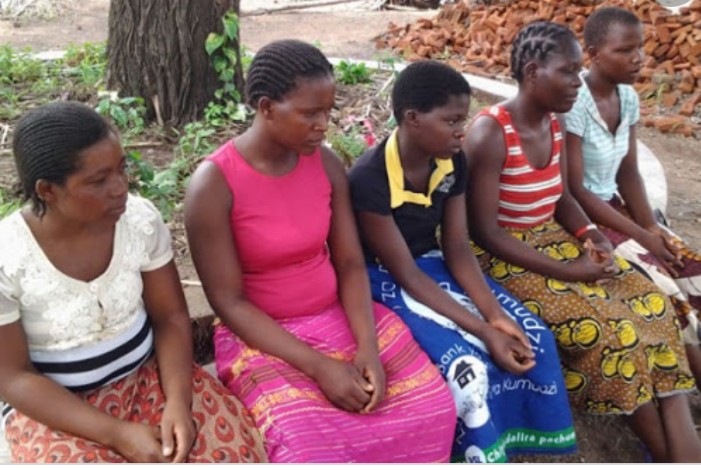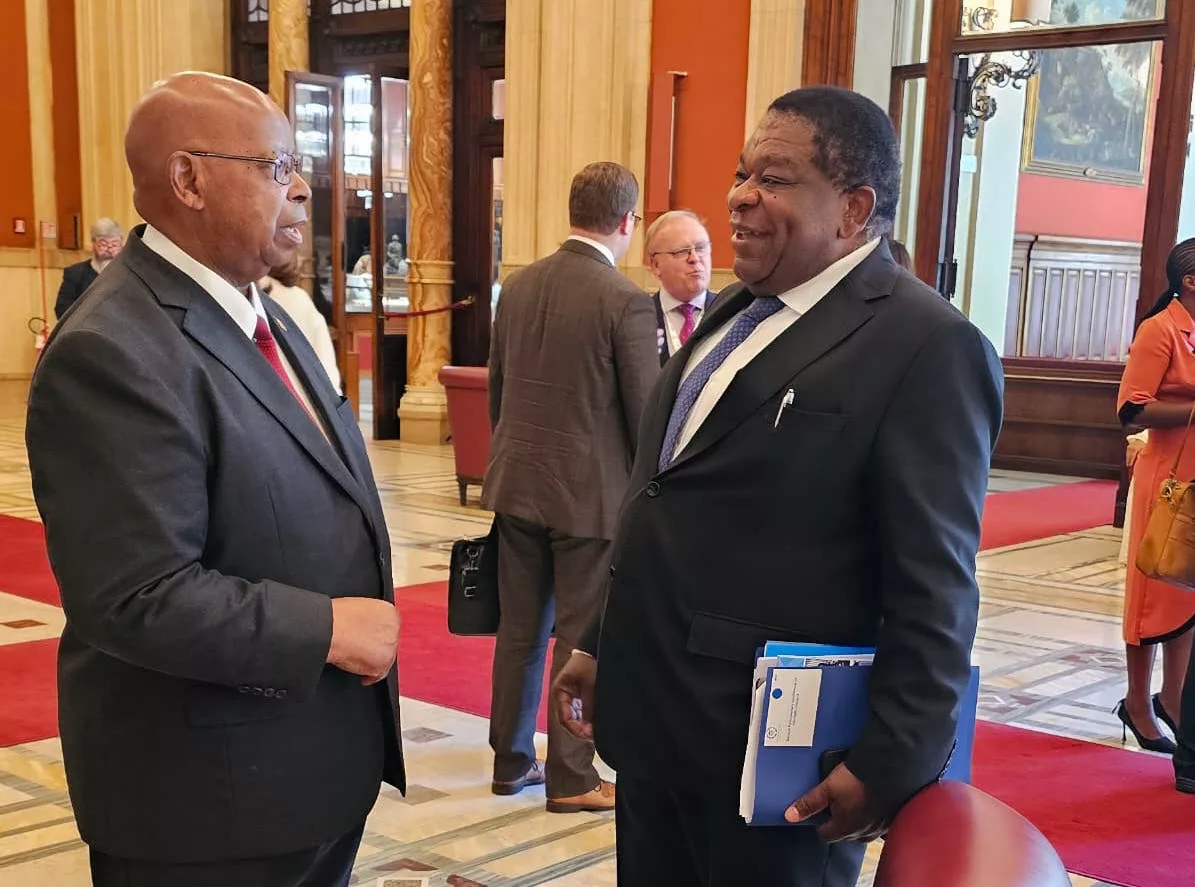By Joyce Mukucha
Zimbabwean young women and girls are pleading with the government and other youth-oriented organisations to challenge the legal frameworks that are not favourable for young people to access sexual reproductive health and rights (SRHR) information and services that lead to many health problems especially when it comes to safe abortion.
When faced with an unintended pregnancy, women resort to abortion. They self-induce or find providers of abortion services in violation of the law. Thus, abortion continues to be the most emotive and contentious issue in reproductive health.
The World Health Organization (WHO) defines unsafe abortion as a procedure for terminating an unintended pregnancy carried out either by persons lacking the necessary skills or in an environment that does not conform to minimal medical standards or both.
According to the International Conference on Population and Development (ICPD) research, a woman dies every eighth minute somewhere in a developing country due to complications arising from unsafe abortion.
The study further indicates that each year, 44 million abortions take place worldwide, nearly half of them safely and the rest unsafely. Unsafe abortions, it has been pointed out, present a critical public health and human rights challenge of the present time.
With unsafe abortion continuing to be a major public health problem in many countries and Zimbabwe not being spared from the dilemma, Spiked Online Media conducted some interviews with both rural and urban-based adolescents so as to have a deep insight into what they are encountering.
Thus, young women and girls who were willing to open up voiced their concerns indicating that there is a need for strengthening the capacity of other youth organisations in regard to SRHR and the Zimbabwe health legal framework to ensure safe and successful passage from adolescence into adulthood.
Speaking to the Co-founder and Leader of the Rural Initiative for Young People in Hurungwe in Mashonaland West, Mrs. Emina Munatsi pointed out that “the future was female” as she said there was a need for organisations to join hands and make sure that the well-being of a girl child was taken seriously.
In remote areas, she said, lack of good governance, strategic planning, and policies was negatively affecting the future of girls especially in the community.
“Here in rural areas, a lot of girls are aborting pregnancies using traditional medicines and ways. The sad part of it is that many of them are losing their lives because they are doing it unsafely. There is a lack of mechanisms and policies, governance systems as well as strategic planning.
“We are crying for help from the government, civil society organisations, church-based organisations and other relevant stakeholders to intervene and help communities with young women and girls especially in the marginalised in rural areas,” she said.
In an interview, a 17 -year- old Harare girl based in Hopley, Sarah Murima (not her real name) said she was raped and fell pregnant. She had no money to access SRHR services. Her problem was compounded by the fact that she was young and had no social support to deal with her unplanned pregnancy.
“I experienced an accidental pregnancy. At first, I attempted to self-induce the termination and after that, I failed. I turned to an unskilled service provider for abortion and I almost died. Fortunately, I got assistance from relatives. This is a real-life story and so many girls of my age are experiencing it. There is a need for mechanisms and policies to be put in place so that women and girls don’t lose their lives trying to abort pregnancies the unsafe way,” she said.
A Chivhu rural-based girl, Rumbidzai Muvinga narrated her story and said that she failed to make proper use of the contraceptives and ended up falling pregnant and tried to abort.
A host of barriers and challenges, she said, result in unintended pregnancies and restrict access to safe abortion.
“Because of ignorance, I think I was using the contraceptives in the incorrect or inconsistent way and I fell pregnant. The responsible person denied the pregnancy. I felt that I wasn’t responsible to take care of the baby and I decided to abort.Therefore, in Zimbabwe, there is a need to ensure universal access with adequately trained providers both in the provision of safe abortion procedures, and also in counselling, together with necessary equipment and infrastructure,” she said.
Nyarai Dzimba aged 19 who is based in Mutorashanga rural said access to abortion is commonly restricted, not only by the law but also by other barriers such as social and cultural impediments that also contribute to delays in seeking an abortion to a time beyond the limit set by the law and thus leaving no option for women other than having an unwanted birth or a clandestine risky abortion.
“Stigma and a set of laws against abortion is a fundamental barrier to accessing abortion services. Together, these barriers and challenges deprive women of accessing safe abortion and expose them to unwanted births or to unsafe abortion and its devastating consequences of death and disability.”
Other young women and girls who were approached by Spiked Online Media said there was a need for campaigns that focus on how best the Zimbabwe abortion legal framework can help young people from losing their lives and as well as helping those who are having lifelong health problems because of these issues.
“There is need for more workshops aimed at strengthening the capacity of the youth-led organizations in areas they lack including governance systems as well as strategic planning so that together as one big voice, we can strategically tackle issues affecting young people in Zimbabwe and help improve their lives,” said Mr. Walter Chikanya, the Director of the Zimbabwe Community Health Intervention Research (ZiCHIRe).
The ICPD study further indicates that induced abortion, safe or unsafe, legal or illegal, is a universal phenomenon and has existed throughout recorded history with deaths and disability due to unsafe abortion continuing to occur against the backdrop of major advances in the medical profession, especially in terms of the availability of safe and effective technologies and skills for induced abortion.
“Medical technologies for safe abortion are no longer a problem, but the availability of and access to these technologies remains a formidable challenge. Countries that are in transition from more to less restrictive abortion laws have to build the infrastructure and skills
“Other countries that liberalized the law in the last 10-15 years are still struggling to provide much needed services, including change in attitude of service providers.
“Legal provisions governing access to safe abortion, availability, and quality of official abortion services, fees involved in the procurement of safe abortion, the attitude of health staff, and approach to clients can all be major barriers. Lack of awareness of what the law actually permits among the public, women, legal and health staff alike persists,” the ICPD notes
As indicated by WHO and ICPD, political and policy barriers in Zimbabwe and other countries worldwide continue to hinder legal reforms to permit abortion on request and to make services accessible where countries have reformed the laws.
“No other issue in reproductive health divides politicians and policymakers as abortion. More recently, the organized opposition to the provision of safe abortion and efforts to make its access more restrictive are presenting formidable challenges,” said ICPD and WHO in the study titled, ‘Access to Safe Abortion: Progress and Challenges since the 1994 ICPD Conference‘.
According to a study conducted by Right Here Right Now Strategic Partnership, there is an estimate of 60 000 to 80 000 unsafe abortions taking place in Zimbabwe.
Last year, My Age Zimbabwe Trust through the Capacity Strengthening for Safe Abortion Project being supported by Amplify Change held a capacity building workshop to strengthen the capacity of other youth-led organizations in regards to Sexual Reproductive Health and Rights (SRHR) and the Zimbabwe health legal framework.
“A safe and successful passage from adolescence into adulthood is the right of every child. This right can only be fulfilled if families and civil society organizations are capacitated on human rights approaches to SRHR so as to challenge the legal frameworks that are not favorable for young people to access SRHR information and services resulting in many health problems,” My Age Zimbabwe highlighted.






